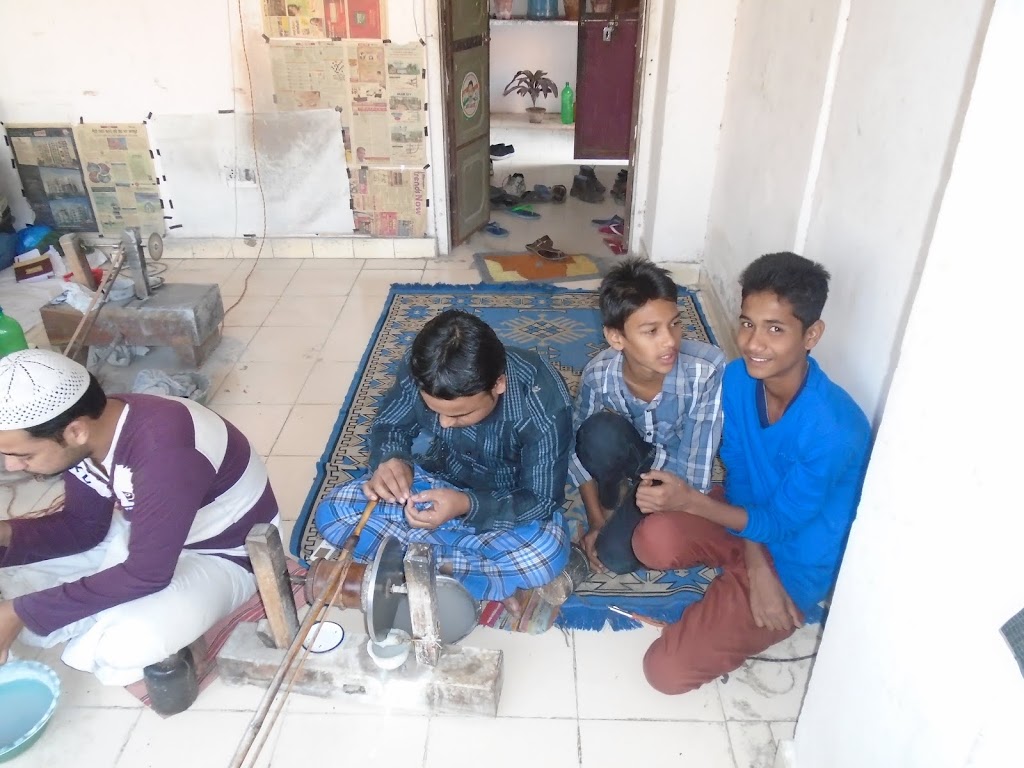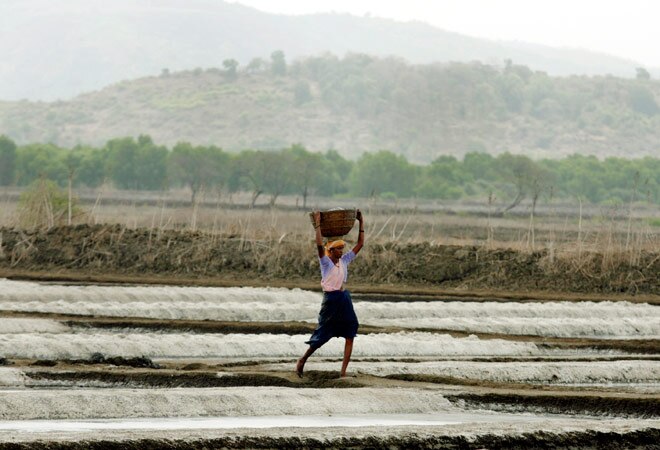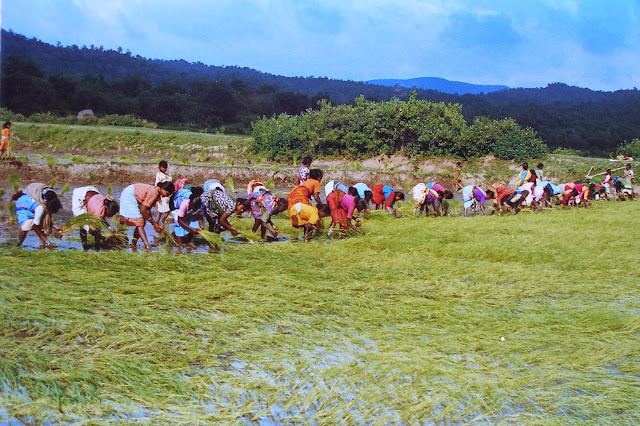Nesar Ahmad
 |
| First published in today’s Hindustan Times |
The
recently formed Bhartiya Janta Party government in Rajasthan has not very
clearly articulated its policy direction yet. The state unit of BJP had
presented a long election manifesto before the legislative assembly elections,
but the government has hardly got any time to implement it. Soon after the
formation of the government the Loksabha elections were declared, and
government got enough time only to present state’s Interim Budget 2014-15 and
the vote on account in March. The interim budget speech by the Chief Minister
Ms. Vasundhara Raje was very short and provided no clue to the possible policy
directions her government intended to take. The three priority areas identified
in the budget are promotion of solar energy, providing water to the unreached
villages and laying a road network of 20 thousand KM in the state. However, the
budget allocation was increased only for solar energy and not for the other
two. The earlier Bhamashah yojana is also to be reintroduced according to the
budget speech. Under the scheme, the state government plans to deposit Rs. 1,500
in accounts of 50 lakhs rural families through biometric smart cards along with
health insurance. However, the social development schemes initiated by the
earlier government like free medicine and free medical tests schemes could not
find mention in the budget speech.
recently formed Bhartiya Janta Party government in Rajasthan has not very
clearly articulated its policy direction yet. The state unit of BJP had
presented a long election manifesto before the legislative assembly elections,
but the government has hardly got any time to implement it. Soon after the
formation of the government the Loksabha elections were declared, and
government got enough time only to present state’s Interim Budget 2014-15 and
the vote on account in March. The interim budget speech by the Chief Minister
Ms. Vasundhara Raje was very short and provided no clue to the possible policy
directions her government intended to take. The three priority areas identified
in the budget are promotion of solar energy, providing water to the unreached
villages and laying a road network of 20 thousand KM in the state. However, the
budget allocation was increased only for solar energy and not for the other
two. The earlier Bhamashah yojana is also to be reintroduced according to the
budget speech. Under the scheme, the state government plans to deposit Rs. 1,500
in accounts of 50 lakhs rural families through biometric smart cards along with
health insurance. However, the social development schemes initiated by the
earlier government like free medicine and free medical tests schemes could not
find mention in the budget speech.
In
the midst of all this the government also reconstituted the State Planning
Board (SPB), which is quite heavily dominated by the big corporate names from
the outside state. According to a government order dated March 3rd,
the state’s new SPB would advise the state government on “the measures for
sustainable, balanced and overall development of the State”. The Board chaired
by the Chief Minister, has no Deputy Chairperson. The 19 member strong board
has as many as 8 big industrialists, most of them from outside Rajasthan. There
is also one economist, again not from the state, one ex-IAS officer (who has
served in the state) and two social workers from a Bangluru based NGO, apart
from a few government officials.
the midst of all this the government also reconstituted the State Planning
Board (SPB), which is quite heavily dominated by the big corporate names from
the outside state. According to a government order dated March 3rd,
the state’s new SPB would advise the state government on “the measures for
sustainable, balanced and overall development of the State”. The Board chaired
by the Chief Minister, has no Deputy Chairperson. The 19 member strong board
has as many as 8 big industrialists, most of them from outside Rajasthan. There
is also one economist, again not from the state, one ex-IAS officer (who has
served in the state) and two social workers from a Bangluru based NGO, apart
from a few government officials.
So,
should the composition of the SPB be taken as a clue to a industrial
development based policy direction, which would give priority to big businesses
and their interests, in the state? If that’s the case it would unfortunate as
the state government needs to focus on agriculture, water and social issues.
According to the 2001 Census, farmers in the state are quitting farming only to
become agriculture labourers. The employment provided under MGNREGA is on
decline, and many regions of the state are facing shortage of water. The need
therefore is to focus on agriculture, water and rural sectors and also to
strengthen the social development schemes started in the previous regime. The
industrialization and urbanization anyways is likely to get a boost with the
implementation of Delhi-Mumbai Industrial Corridor (DMIC), which has the
longest stretch in the state. But if the policy advisory body like SPB has
domination of big industrial players, the whole development policy environment
may get heavily skewed towards the big businesses, which may not be a desirable
situation for the state.
should the composition of the SPB be taken as a clue to a industrial
development based policy direction, which would give priority to big businesses
and their interests, in the state? If that’s the case it would unfortunate as
the state government needs to focus on agriculture, water and social issues.
According to the 2001 Census, farmers in the state are quitting farming only to
become agriculture labourers. The employment provided under MGNREGA is on
decline, and many regions of the state are facing shortage of water. The need
therefore is to focus on agriculture, water and rural sectors and also to
strengthen the social development schemes started in the previous regime. The
industrialization and urbanization anyways is likely to get a boost with the
implementation of Delhi-Mumbai Industrial Corridor (DMIC), which has the
longest stretch in the state. But if the policy advisory body like SPB has
domination of big industrial players, the whole development policy environment
may get heavily skewed towards the big businesses, which may not be a desirable
situation for the state.



